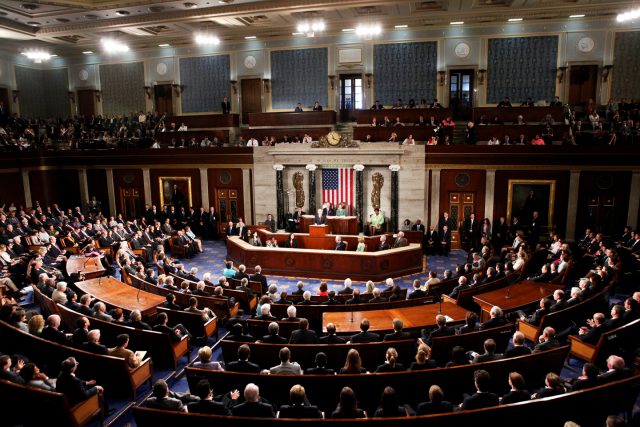WASHINGTON (Reuters) – The U.S. House voted on Tuesday 215-205 to repeal regulations requiring internet service providers to do more to protect customers’ privacy than websites like Alphabet Inc’s Google or Facebook Inc.
The White House said earlier Tuesday that President Donald Trump strongly supports the repeal of the rules approved by the Federal Communications Commission in October under then-President Barack Obama.
Under the rules, internet providers would need to obtain consumer consent before using precise geolocation, financial information, health information, children’s information and web browsing history for advertising and marketing.
Last week, the Senate voted 50-48 to reverse the rules in a win for AT&T Inc, Comcast Corp and Verizon Communications Inc.
The White House in its statement said internet providers would need to obtain affirmative “opt-in” consent from consumers to use and share certain information, but noted that websites are not required to get the same consent. “This results in rules that apply very different regulatory regimes based on the identity of the online actor,” the White House said.
Websites are governed by a less restrictive set of privacy rules overseen by the Federal Trade Commission.
FCC chairman Ajit Pai in a statement praised the decision of Congress to overturn “privacy regulations designed to benefit one group of favored companies over another group of disfavored companies.” Last week, Pai said consumers would have privacy protections even without the Obama internet provider rules, but critics say they will weaker.
The American Civil Liberties Union, which opposes the measure, said companies “should not be able to use and sell the sensitive data they collect from you without your permission.”
 An Internet & Television Association statement called the repeal “an important step toward restoring consumer privacy protections that apply consistently.”
An Internet & Television Association statement called the repeal “an important step toward restoring consumer privacy protections that apply consistently.”
One critic of the repeal, Craig Aaron, president of Free Press advocacy group, said major Silicon Valley companies shied away from the fight over the rules because they profit from consumer data.
“There are a lot of companies that are very concerned about drawing attention to themselves and being regulated on privacy issues, and are sitting this out in a way that they haven’t sat out previous privacy issues,” Aaron said.
Representative Michael Capuano, a Massachusetts Democrat, said Tuesday that Comcast could know his personal information because he looked up his mother’s medical condition and his purchase history. “Just last week I bought underwear on the internet. Why should you know what size I take? Or the color?” Capuano asked. “They are going to sell it to the underwear companies.”
Comcast declined to comment.
Representative Michael Burgess, a Texas Republican, said the rules “unfairly skews the market in favor” of websites that are free to collect data without consent.
Republican commissioners, including Pai, said in October that the rules would unfairly give websites like Facebook, Twitter Inc or Google the ability to harvest more data than internet service providers and thus further dominate digital advertising. The FCC earlier this month delayed the data rules from taking effect.
(Reporting by David Shepardson. Additional reporting by David Ingram and Stephen Nellis in San Francisco; Editing by Chizu Nomiyama and Grant McCool)


 Subscribe
Subscribe

I do not pay Google and Facebook every month for their services. I certainly pay Frontier every month. So now companies like Comcast will compete with Google to sell the user data to advertisers. Comcast will certainly have an advantage over Google since everything you do goes through Comcast if they are your internet provider. You will NOT see a reduction in the price of your internet.
You have a very good point, that you can Opt-Out of Google and Facebook, but not your ISP. This problem could be solved by requiring ISP’s to have a customer Opt-Out, similar to the No-Call-List for your telephone number. Then all ISP’s and Websites would be subject to the same FTC rules and offer the same level of privacy. I’d rather the FTC policy be Opt-In for any case when customer data is collected; the No-Call-List , ISP data collection, et al. But at a minimum, they should always have an on/off switch that is controlled by the consumer, even… Read more »
That would only get rid of them selling the data to advertisers. There is an article on stopthecap about AT&T’s program that sells data to police. That would continue. Do not think that that use of data collection will be terminated.
I searched Stop the Cap and could not find the article you mentioned, about At&T selling data to the police. Could you post the link?
http://stopthecap.com/2016/10/26/att-know-last-summer-profited-selling/